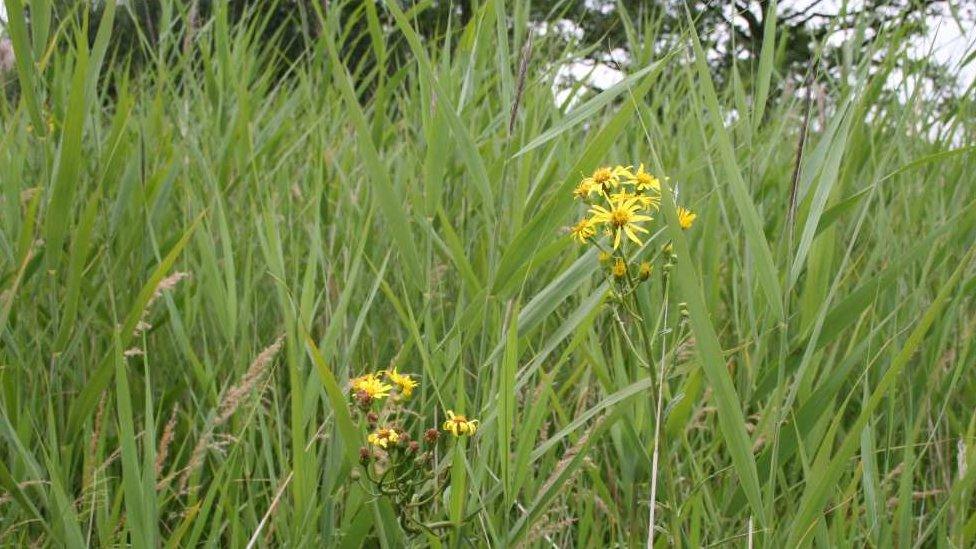Rescued donkeys in Devon to help endangered wildflower
- Published
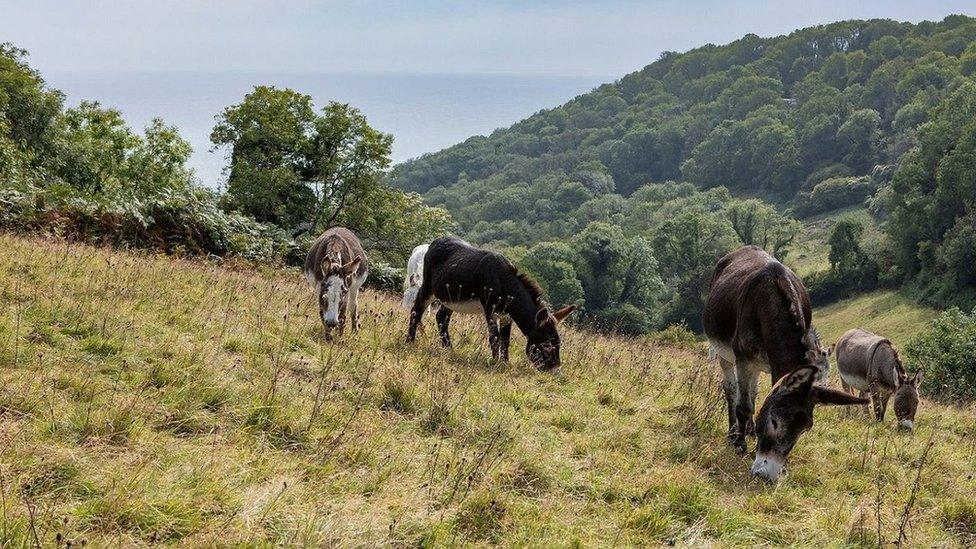
Donkeys will walk over sown catchfly seeds to embed them and boost chances of germination
Rescue donkeys are joining work to save a rare farmland wildflower.
About 20,000 small-flowered catchfly seeds have been sown at the Donkey Sanctuary in Devon.
The catchfly had disappeared from 70% of its known sites in Britain with the rise of intensive farming and more herbicide use, project managers said.
Donkeys would walk over the sown seeds, embedding them, to hopefully boost chances of germination, the sanctuary said.
The catchfly's habitat is in the margins of fields near coasts, and it boasts pinkish-white leaves and sticky hairs.
It was now only found in Wales and south west England, the charity Plantlife, the project's partner, said.
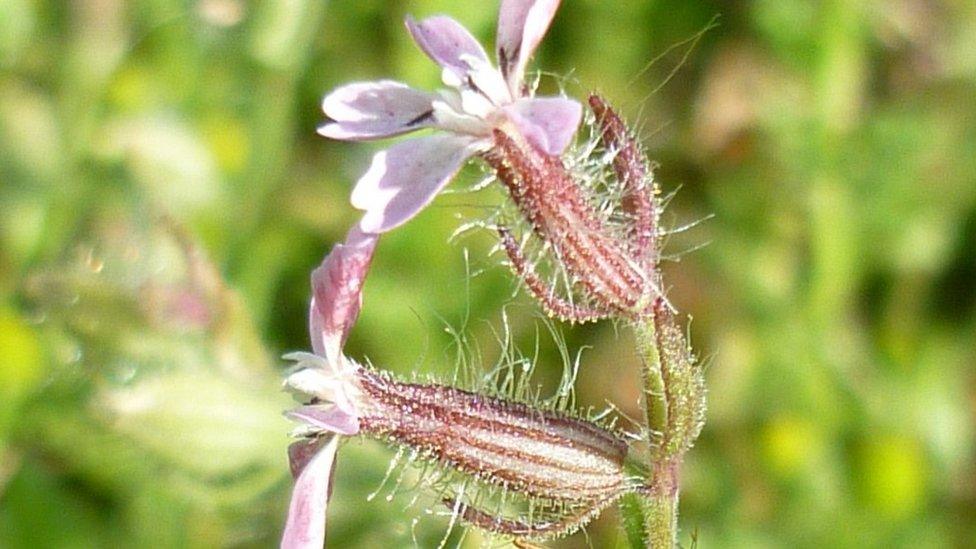
The small-flowered catchfly has disappeared from 70% of its known sites in Britain
The international animal welfare charity, near Sidmouth, said its donkeys would be walked over the seeded plots at its headquarters.
The plan was to grow the seeds alongside other wildflowers and grains to create a landscape that could support threatened farmland birds such as the skylark, yellowhammer and linnet, it said.
Sanctuary ecology and conservation manager Ruth Angell said: "Increasing biodiversity is essential for an enriched and resilient environment which can support rare species, as well as our resident herds of donkeys."
The work is part of Plantlife's Colour in the Margins project, which works to support rare field plants across the country.
Cath Shellswell, from Plantlife, said it was hoped the project would help "these fantastically rare wildflowers come back from the brink of extinction by giving them a helping hand in one of their original regional strongholds".

Follow BBC News South West on Twitter, external, Facebook, external and Instagram, external. Send your story ideas to spotlight@bbc.co.uk, external.
Related topics
- Published22 February 2021
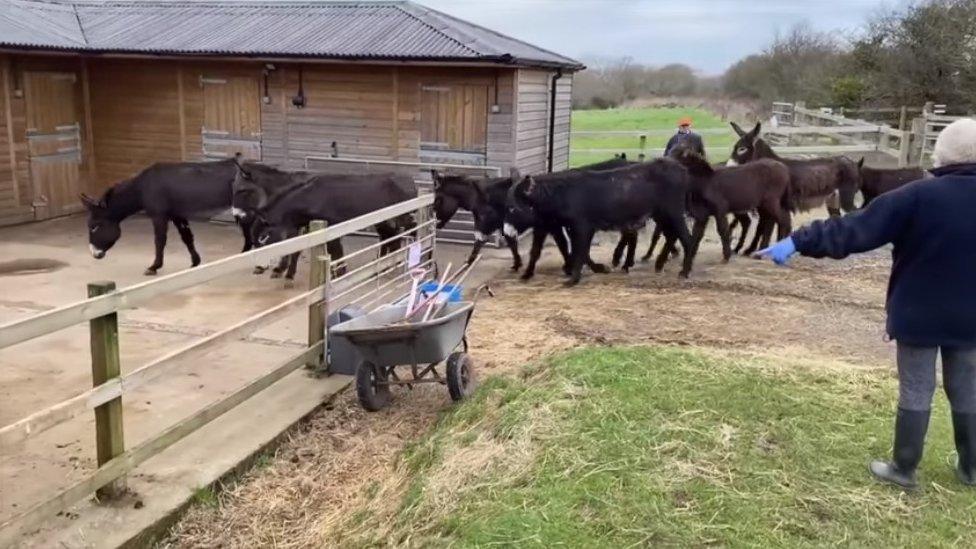
- Published6 February 2019
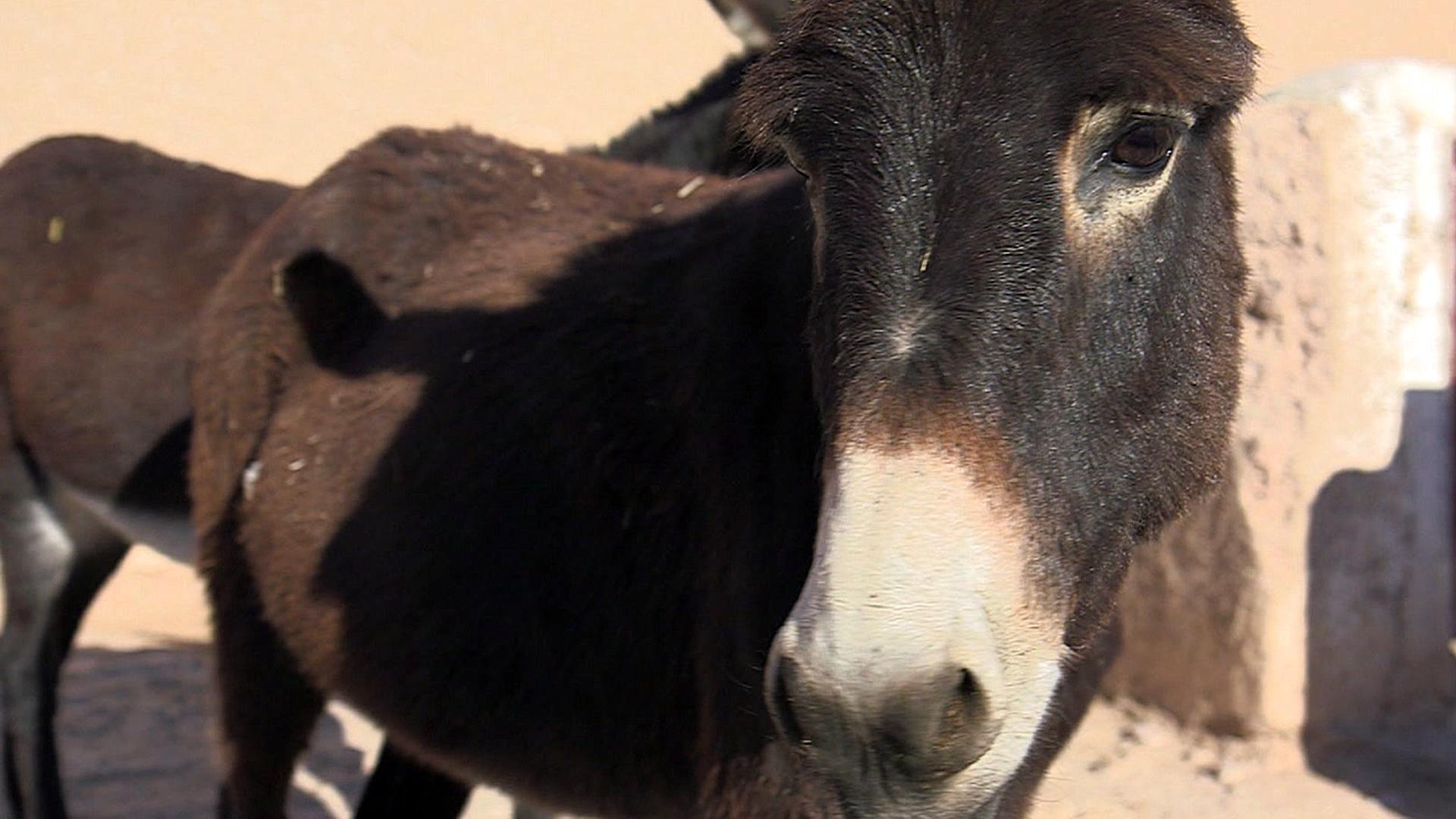
- Published24 April 2017
